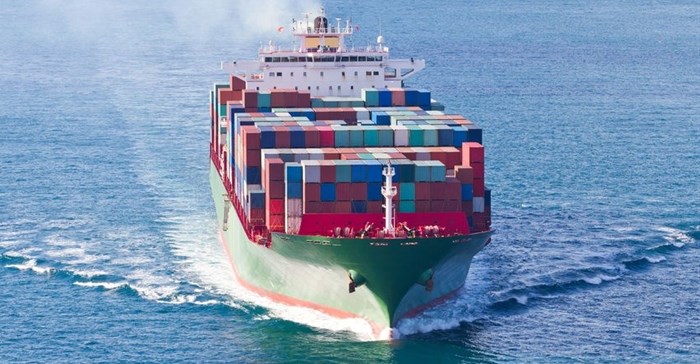
Top stories






More news














Like other transport industries shifting to more energy efficient practices - such as the global airline industry* pledging to cut airlines' carbon emissions in half by 2050 - maritime sector players, both in South Africa and abroad need to be committed to conducting business responsibly and reducing the wider economic, social and environmental impact of their activities. This will effectively enable trade at lower carbon intensity and promote efficient and sustainable supply chains.
Currently, the most energy efficient means to move high volumes of goods across long distances is container shipping, and the global maritime transportation system contributes to trade by moving approximately 90 percent of cargo and commodities. However, the effect which the industry has on the environment in terms of carbon dioxide (CO2) emissions, is substantial.
Through energy efficiency it is possible to increase volumes of trade between global markets trade without increasing CO2 emissions. In recent years Maersk Line has pioneered energy efficient initiatives that range from network design and speed optimisation to technical upgrades and the deployment of world-first fuel efficient ships in our network, such as the Triple-E vessels.
The vessel's name is derived from the class's three design principles: economy of scale, energy efficient and environmentally improved. These majestic 400m vessels reduce carbon dioxide emissions by 35% per container moved compared to the industry average and transports high volumes of goods across long distances with minimal impact on the environment, thereby leading the way in sustainable transportation of commodities.
As part of the United Nations Global Compact (UNGC), which is the world's largest corporate sustainability initiative, Maersk publicly commits to corporate sustainability and practising eco-friendly and sustainable business models. By the end of 2014 Maersk Line reduced emissions by 40% per container by implementing energy efficient practices on board. We are also raising the 2020 Group-wide target for improving CO2 efficiency from 20% to 30% and have set a target to emit 60% less CO2 per container moved by 2020.
Further, Maersk committed $1-billion on 100 vessels to be upgraded with new components by 2020 and has already started with retrofits in 2014, doing upgrades on engines, on-board sensors which gives the best possible operating advice to operate the vessel in the most efficient way, optimising propellers and bulbous bows - which is the front of a ship just below the waterline - which will increase the fuel efficiency immensely on existing fleets. This energy efficient technology and upgrades on vessels significantly curbs environmental pollution and improves the carbon footprint of its vessels globally.
By reducing the CO2 footprint of containerised transport and optimising energy efficient global transport supply chains, the maritime transportation industry will provide themselves - and customers' businesses - with a licence to grow.
*Pledge by the International Air Transport Association (IATA)